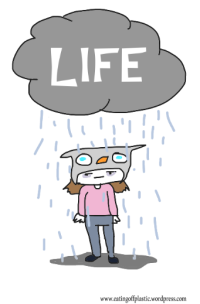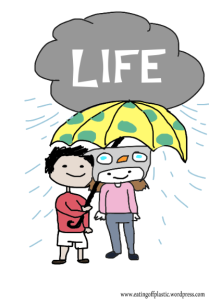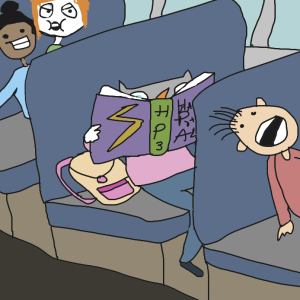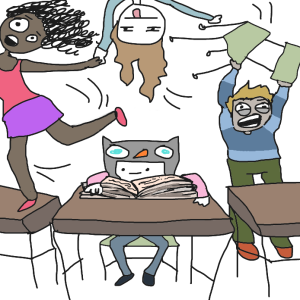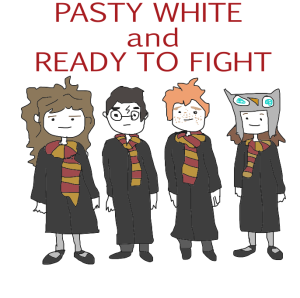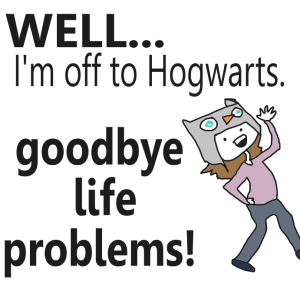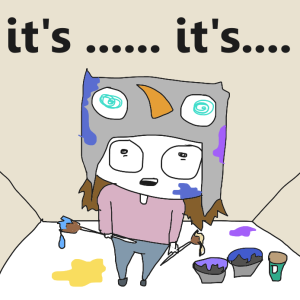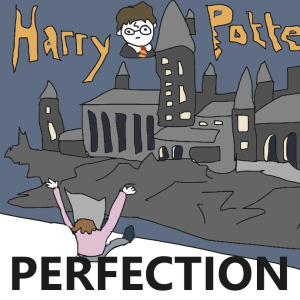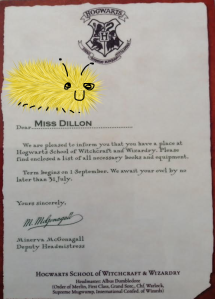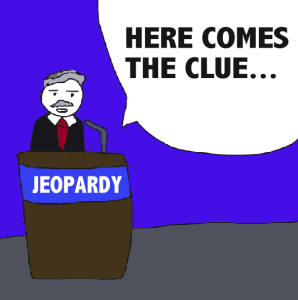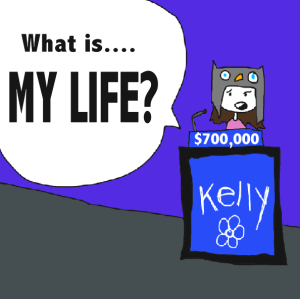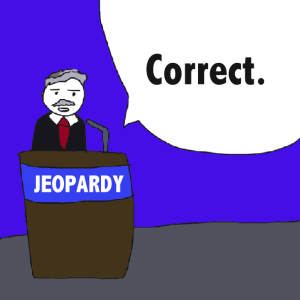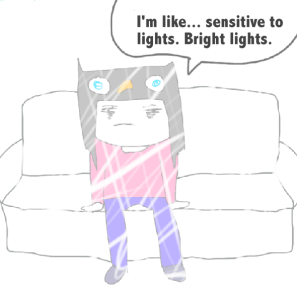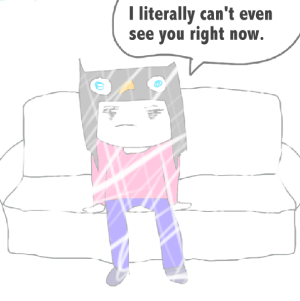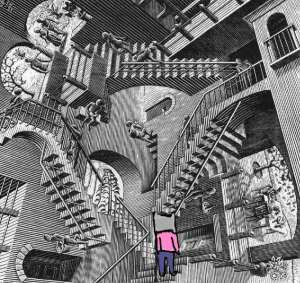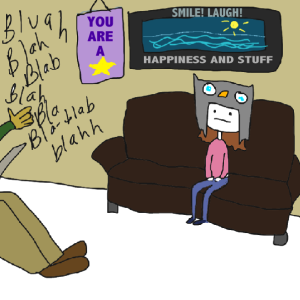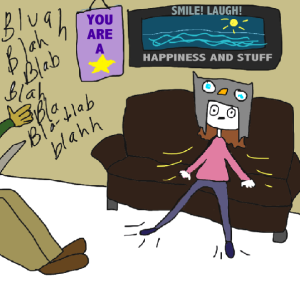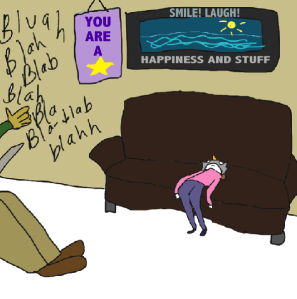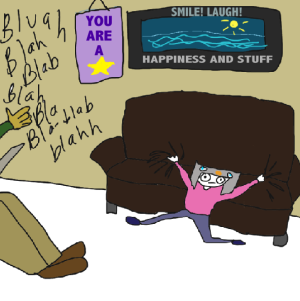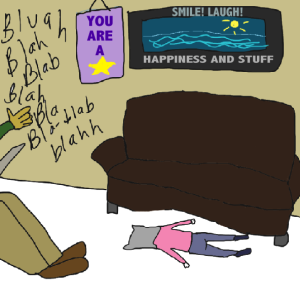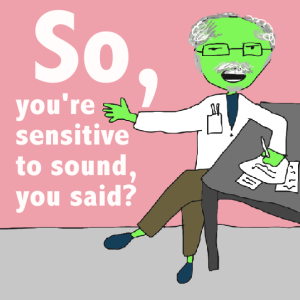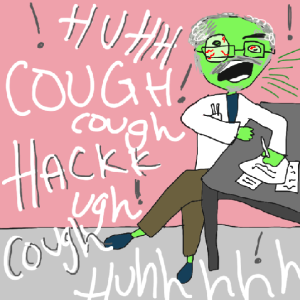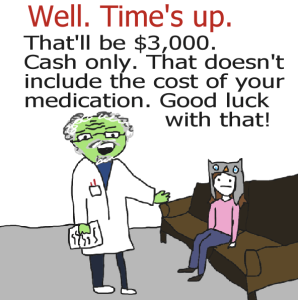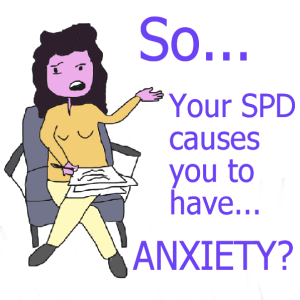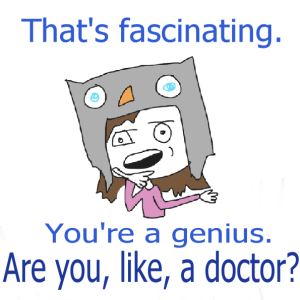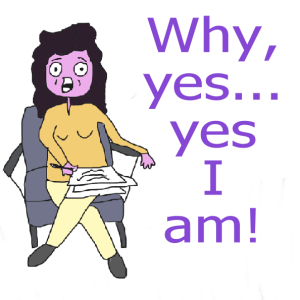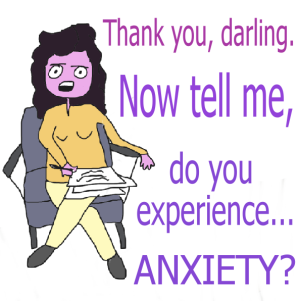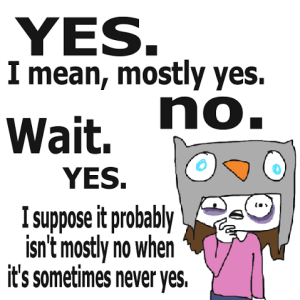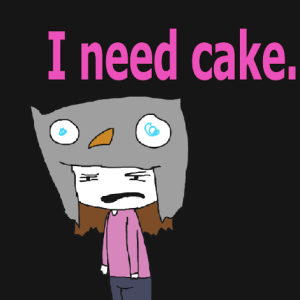I have Sensory Processing Disorder. Some people don’t refer to it as a disability – I do. My SPD disables me everyday; it’s impacted my life since birth. I am not ashamed or embarrassed to say this, even if some people with SPD do not consider themselves disabled. Huzzah for those guys….but I am not them.
Say what you mean…or mean what you say?
About three years ago, I started to hear this new, fancy term known as people first language (also called person first language or PFL). Everyone loves abbreviations, right?
As a psychology student, this term was used all the freaking time. My professors and fellow students agreed that it was the correct way to address a person who has been given the diagnosis of a certain disability/condition (neurological or physical). I will now demonstrate, for you, at this very moment, how people first language works. OK, here I go:
Instead of saying, “that boy is autistic,” you would say, “that boy with autism.”
Instead of saying, “she’s schizophrenic,” you would say, “she has schizophrenia.”
Instead of saying, “he’s learning disabled,” you would say, “he has a learning disability.”
People first language is using words that put the person before the disability. It is supposed to emphasize the fact that the person in question is not defined by the nature of their disability, whatever it may be. It suggests that they are not part of their disability, rather, they are a unique individual whose personality and goals are a separate entity from their disability.
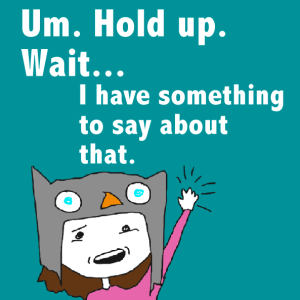
In my brain, this idea doesn’t exactly sit so pleasantly. There’s a lot I don’t agree with.
(Before you begin to express your dislike of my opinion in the form of rage-filled comments, please give me the opportunity to explain my reasoning.)
We have come a long way in regard to changing the way in which our society – at least westernized society – views various illnesses and disabilities. Still, neurological conditions are far behind physical conditions when it comes to social acceptance.
People first language is often used with physical conditions, such as cancer, diabetes, spina bifida, or skin problems. But when referring to many neurological conditions, PFL is often not used: anorexic/bulimic, autistic, epileptic, dyslexic, and schizophrenic are just a few examples.
Then again, I can think of disabilities and illnesses that break this rule.
People with diabetes are often called diabetics, and I’ve never come across someone who protests this wording.
Yet, we don’t say people with cancer are cancer or cancerous.
We also don’t say that people with cerebral palsy are cerebral pals…ic?
Back and Forth
Do you see how confusing this is? It is such a sensitive topic, and I did a great deal of research – and a lot of pacing and stimming around the room – to formulate my opinion. For the record, I am not entirely one-sided on this issue. In fact, there are several valid points supporting PFL that I agree with. In many circumstances, people do not want their disability to be part of their identity; they believe they will be seen only as disabled and nothing more.
However, I think the direction in which people lean in this PFL or non-PFL debate depends upon their relationship with their identity as a disabled person. Even though I have SPD, I accept that I am recognized as a disabled individual by many, but that knowledge does not disable me. Being comfortable with the label “disabled” allows others to see that I am more than the limitations of my disability. I do not expect people to see me as nothing more than a disabled individual because I avoid seeing myself in that way, and people sense this.
Disability Identity
I’ve lost count of the number of times I’ve encountered the words, “I am not my disability.” I don’t entirely agree with this statement either.
I believe the reason we are using people first language is because society is still rather ignorant about the nature of various disabilities and illnesses. When I say ignorant, I’m also including the words judgmental, fearful, unsure, and assuming. Right about now you’re probably thinking, “gee, that’s a very bold thing to say.” Yes it is, my internet friends, yes it is.
While people diagnosed with diseases like cancer or diabetes often face stigma, it doesn’t hold a candle to the stigma faced by those with neurological diseases. This stigma, I suspect, has very little to do with PFL. The judgment and misunderstanding that disabled people face every day is the result of lack of education and knowledge of disabilities. The attitude towards disabled people is the attitude that has existed for so long. I think it is the mindset BEHIND the language that creates stigma.
Stigma is the big, awkward elephant in the room. (He smells quite a bit, and everyone gets used to him. Still, he’s there…being an elephant in a room. Everyone’s thinking about how he needs to be addressed, but they’re not sure where to begin. I mean, he’s an elephant – you can’t exactly carry him out.)

“But Kelly,” you say with a skeptical tone, “isn’t stigma created by not using people first language?”
Dearest reader, I understand the mind-blowing power of words. I have snuggled in bed at 3am sobbing over a single sentence in a novel, and the next morning, questioned my sanity. But I know that no matter what words we use to describe a disability, that disability will always be thought of in the same way, unless the stigma – the mindset behind the words – is altered. Hear me when I say just because your disability creates challenges that you wish were not part of your life does not necessarily mean that it should be disconnected from you as a person. Disabilities – differences of any kind – define who we are. They shape our personalities; they establish our moral code; they form social skills and self awareness. You are who you are because you have lived disabled, and damn it, that is part of your identity – good or bad.
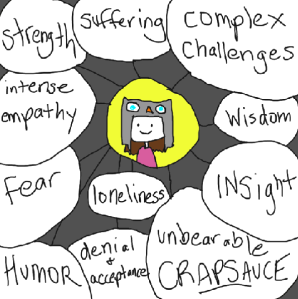
We refer to people of various sexual orientations with the words gay, bisexual, asexual, etc. You don’t hear a gay person referred to as “a person with homosexuality.” Being gay is part of who a person is; it is part of their self. Even identities that do not originate biologically, such as religious affiliation, are often considered part of a person’s identity. “I am Jewish.” “I am Agnostic.” “I am Pastafarian.” (Yes, Pastafarians are part of the Church of the Flying Spaghetti Monster, and yes, it is a real thing. Go google it and be amazed.)
Really, you guys? I mean, REALLY?
Are humans so oblivious and uneducated to believe that if we say the words “the autistic man” that we will never assume there is a person inside that man with thoughts, feelings and dreams? But miraculously if we change the words to “the man with autism” suddenly, we can see beyond his disorder. Supporters of people first language use this as an argument. I’m going to be real blunt right now and let you all know I think this is kinda ridiculous. “A man with autism” and “the autistic man” do not make me think of two different people, nor does it make me think less or more of that person. Both phrases describe the same person, who has lived their life with this neurological problem which has shaped the person they have become. THIS, is what we need to be teaching and advocating for.
Would you tell your transgender friend to think of their gender identity as a detached person who isn’t really them, but you know, still lives in their body and will always be part of their self? Could you IMAGINE THIS ABSURD CONVERSATION? (Replace the transgender topic with bipolar disorder, for example, in the conversation below.)
Random human 1: “I hear you’re a person with transgenderism. So you have your transgender self and your inner non-transgender self, correct?”
Random human 2: “Um, no. I am transgender. It is part of my self, and my being. I’m the same person inside with or without being transgender.”
Random human 1: “But I’ve always thought that someone with transgenderism tries to separate themselves from their transgenderistic qualities because they want people to know that they are more than their transgenderism, considering it causes a lot of problems and can make life difficult in various ways, also – “
Random human 2: “Why would people think there wasn’t any more to me than my identity as a transgender person? You cannot seriously tell me that you believe that I am not ONE person, no matter what types of, or how many identities I give myself, and what connotations those identities have? Also, if you use the word transgenderistic again I will…I will…..meh, I need a cupcake to get over this level of crapsauce.”
(Note: transgenderistic is not a word. I made it up. You could probably tell. However, crapsauce is a word because I say it is.)
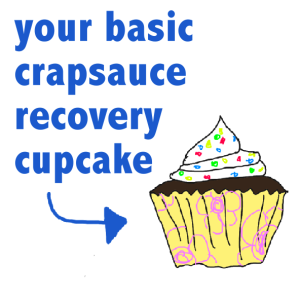
Bad Words Linger
I need to mention that despite all I’ve said here, there are words in every language that should never be used because they are only used in a degrading, ignorant way. Words like retard, mongol, midget, or schizo, are just a few that come to mind.
These words are only associated with negative connotations. They are tied to dehumanization, and nothing more. Bottom line: don’t be a goober – don’t say words like these.
How I See Myself
In my case, Sensory Processing Disorder is always referred to in PFL because, well, that’s just how it’s said.
Unless of course, you’re like me and say “I am an SPD’er!” SPD’er is a phrase that I use on this very blog, and one that I see on dozens of other websites. People refer to themselves, their children – their goofy uncle – as an SPD’er, and most people are fine with this.
Does my SPD suck fun and normalcy out of my life? Yes.
Does my SPD stomp all over my efforts to be a functioning adult at times? Yes.
Do I cry over it? Yes.
Has it carefully shaped my personality, my outlook on life, my goals, and my self-worth both positively and negatively? Yes.
Does connecting my disability and my identity – deeming my disability part of me, and part of what makes me, me – cause me pain, humiliation and discrimination? NO. NO WAY JOSE, AND JOSE B.
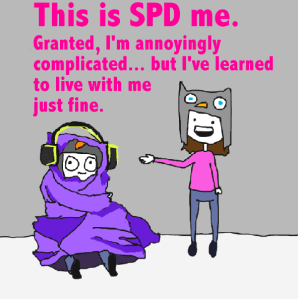
I also have depression and anxiety – I am depressed and anxious. I’m not enraged when someone refers to me as depressed and anxious. It is what I am. In spite of this, the stigma that surrounds mental illness permeates my self-perception. I laugh in disbelief at myself, for I’m guilty of harboring discomfort when recognizing myself as a depressed and anxious person – even when I know that depression and anxiety are real illnesses, just like any other illness and I should not feel discomfort when identifying myself in that way. It is a battle that is entirely my own, as I know I can think of my depression and anxiety in the same way that I think of my SPD. I’m just not there yet, but I’ll get there sooner or later.
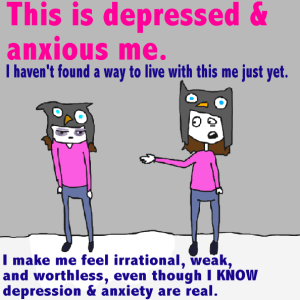
But, this still sucks…a lot
I will not tell you that having a disability isn’t hard. I know it’s hard – and miserable, and annoying, and frustrating, and isolating, and a bazillion other things. But to end stigma, disabled people have to OWN their disability. For me, and other people with disabilities, it will only hurt us more if we continue to not embrace our identity. I think people first language can separate disabled individuals from their disability, as if we’re pretending the disability doesn’t exist. Honestly, I’d like my SPD (and depression and anxiety and other issues) to not exist, thank you very much, but that’s not an option right now. It’s stuck in my body, and there is nothing gained from me ignoring it. Instead, I treat it, fight it, and work my way around it; laugh at it, cry at it, and learn to love the body that carries it.
And by it, of course, I am referring to me, because I am my disability.
xo kelly
p.s. Sorry for the lack of blogging recently. Depression has me mostly non-functioning. What a jerk.
